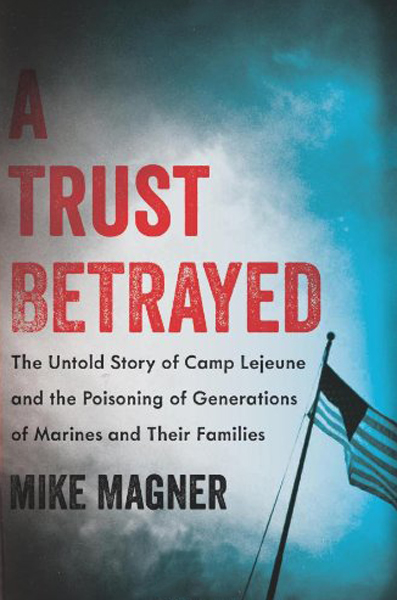The Federal Government's Scandalous Treatment of Veterans (No, Not THAT Scandal. Yet Another One.)
In the face of more and more stories about the shabby and inadequate treatment of veterans, the Obama administration has pledged to do better for those who have sacrificed so much for the nation. But it’s blocking justice for those who served at Camp Lejeune in North Carolina.
 The sprawling base on the Atlantic coast was opened in 1941 to
train Marines for the beach landings that would help win World War
II, and it has since grown into the headquarters for the Marine
division in the eastern half of the United States. But with expansion
came environmental problems.
The sprawling base on the Atlantic coast was opened in 1941 to
train Marines for the beach landings that would help win World War
II, and it has since grown into the headquarters for the Marine
division in the eastern half of the United States. But with expansion
came environmental problems.
As many as a million Marines and family members spent time at Camp Lejeune from the 1950s to the mid-1980s when the drinking water was tainted with toxic chemicals from military wastes and fuel spills that had seeped into the groundwater. Babies conceived or born at the base were especially vulnerable if their mothers used the contaminated water.
The poisoned wells were discovered and shut down in 1985, but it would take another 12 years for the government to tie the polluted water to health problems. Yet more than a dozen deadly illnesses attributable to toxins such as trichloroethylene (TCE) and benzene are still showing up in people who lived or worked at Camp Lejeune decades ago. Many suffered great harm without knowing why for many years – and the military continues to deny their claims for damages.
Former Marine Master Sgt. Jerry Ensminger, whose daughter Janey was conceived at the base in 1975 and died of leukemia in 1985, did not connect her death to the contamination until 1997 when the first study was released on Lejeune, and even then was told for years that the Marine Corps was not responsible. Tom and Anne Townsend had no idea why their son died from heart defects and other ailments six weeks after he was born at Camp Lejeune in 1967 – until the federal study was released 30 years later. Mike Partain, whose mother drank contaminated water at the base while she was pregnant with him in 1967, was diagnosed with breast cancer – extremely rare in men – four decades later in 2007.
Congress acknowledged in 2012 that at least 15 diseases, including leukemia and liver cancer, could be linked to Camp Lejeune when it passed the Janey Ensminger Act granting health care to Marines and family members who had lived at the base when toxic chemicals were in the water. Incredibly, two years after President Obama signed the law, the Department of Veterans’ Affairs is stalling on its implementation.
Several studies of the pollution’s effects are bogged down as well at the U.S. Centers for Disease Control and Prevention, nearly three decades after the last contaminated well was shut down in 1985. The delays are preventing the VA from acting on thousands of damage claims filed by veterans, family members and civilian employees who believe they were harmed at Camp Lejeune. Those who have already gone to federal court seeking damages are also in limbo, as the lawyers argue about how a U.S. Supreme Court decision in June affects their cases.
That 7-2 ruling, in a case called CTS Corporation v. Waldburger, was just the latest in a long line of government insults to the victims of Camp Lejeune’s tainted water. In the case, the U.S. Department of Justice sided with the corporate polluter in arguing that a North Carolina law setting a 10-year time limit on lawsuits over environmental pollution should take precedence over the federal Superfund law, which gives people harmed by hazardous wastes two years from the time the contamination is discovered to file lawsuits.
The Supreme Court agreed with the industry and government lawyers, in effect setting up a major roadblock to claims against the military for harm caused at Camp Lejeune, since the pollution ended there in 1985. But the argument that victims of the poisoned water could not seek damages after 1995 is both cruel and absurd, since the first acknowledgment that the water could have caused health problems did not come until 1997.
The state of North Carolina said exactly that in a rare show of bipartisan unity against the federal government’s position. Less than two weeks after the Supreme Court’s June 9 ruling, the North Carolina Legislature unanimously passed a bill stating that Washington is dead wrong about the state’s so-called statute of repose.
“The original law was never intended to apply to groundwater contamination, and this bill absolutely clarifies the original legislative intent,” said state Rep. Tim Moffitt, a chief sponsor of the bill that was signed by Gov. Pat McCrory on June 20.
Now it is up to the Obama administration to get the message and allow victims of Camp Lejeune’s poisoned water to have their day in court.